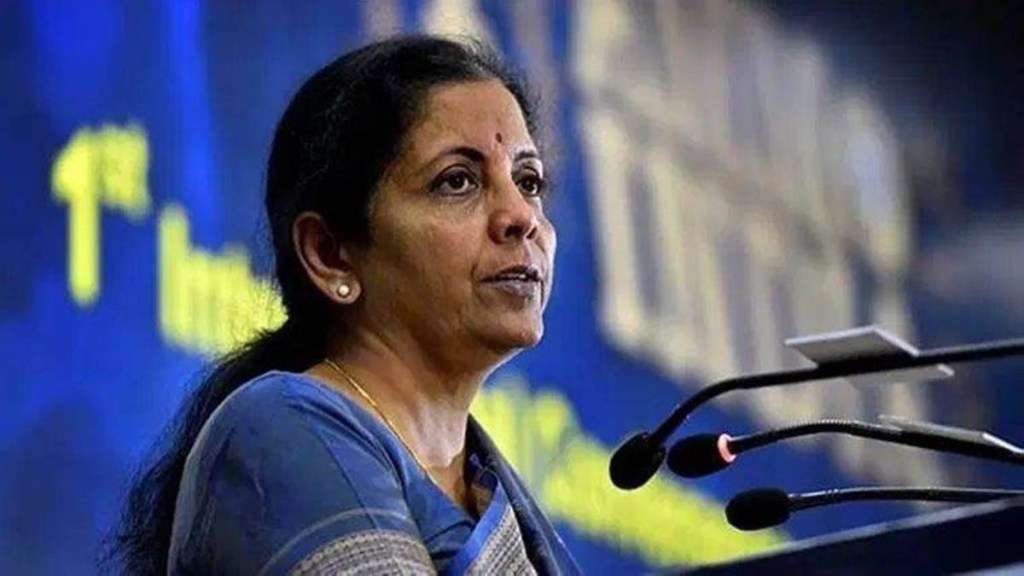Finance minister Nirmala Sitharaman on Sunday called for systematic information exchange among G20 countries covering more and newer classes of assets, as a means to combating tax evasion and money laundering.
Participating in the G20 symposium here, she welcomed a recent OECD report on such information transparency, and suggested that each country may, for instance, share data on immovable property transactions undertaken by its residents in foreign jurisdictions.
Appreciating the progress in crypto-asset reporting framework and updated standards in this regard, the minister said: “Besides these, we should also examine closely whether there are any other classes of assets, in respect of which, information needs to be shared in a systematic way amongst jurisdictions.”
The comments come close on the heels of India and 137 countries last week moving closer to accepting a global framework under the OECD to usher in 15% minimum corporate tax by 2025.
Besides, the domestic laws and systems are being strengthened to thwart money laundering and other financial wrong-doings.
Sitharaman also announced the launch of a pilot programme on tax and financial crime investigation in collaboration with OECD for the South Asian Region starting from July 18 in New Delhi.
In another event held on the sidelines of the meeting of the G20 finance ministers and central bank governors here, Sitharaman said the GIFT International Financial Services Centre (GIFT-IFSC) would grow in size and operations quite rapidly to attract global capital flows. It, she said, will have an important role in “financing inclusive, resilient, and sustainable cities of tomorrow”.
In the Union Budget FY24, the government delegated powers to the IFCS Authority under the special economic zone (SEZ) Act to avoid dual regulations and facilitate greater ease of doing business. “At present, GIFT IFSC has more than 400 entities registered across various business segments, including banks, capital markets, insurance, fintech, aircraft leasing, bullion exchange, etc. and is rapidly growing with healthy and increasing participation of international and domestic financial institutions,” she said during “Investors’ dialogue,” organised in partnership with GIFT, OECD and D20-LTIC.
GIFT-IFSC is designed to create an internationally comparable regulatory framework under a special offshore status within India, and it is expected to attract businesses from established IFCs like Dubai, London and Singapore over the next few years. Facilities available for the GIFT-IFSC units include income tax holiday for 10 continuous years (out of 15 years).
The dialogue was attended by Singapore deputy PM Lawrence Wong, South Africa FM Enoch Godongwana, among others.
Citing climate financing as a major challenge, Sitharaman said: “The cumulative climate investment needed for cities in emerging markets to mitigate and adapt to climate change is estimated at $29.4 trillion between 2018 and 2030.”
Sitharaman also held a number of bilateral meetings with her counterparts and chiefs of multilateral institutions. In her meeting with Canadian deputy prime minister Chrystia Freeland, she discussed the progress being made on ongoing bilateral trade negotiations. Freeland, who is also the finance minister of Canada, said Canadian Pension Funds would be keen to explore investing in Indian Infrastructure Funds as India offers a stable investment climate.
In her meeting with Asian Infrastructure Investment Bank (AIIB) president Jin Liqun, Sitharaman suggested that AIIB should further use innovative financing and financing instruments so as to better address the infrastructure requirements of member countries
“Being the Governor of second largest shareholder of @AIIB_Official, Union Finance Minister Smt. @nsitharaman also discussed critical issues relating to governance, personnel and approvals of Indian projects in Uttarakhand, Himachal Pradesh and other border states in India,” the finance ministry tweeted.
Separately, Indonesian finance minister Mulyani Indrawati and Sitharaman launched “India – Indonesia Economic and Financial Dialogue” (EFD Dialogue) to strengthen economic and policy coordination between the two countries.
“The evolution of India’s ‘Look East Policy’ in 1991, followed by the ‘Act East Policy’, has facilitated a rapid development in our bilateral relations, particularly in the commercial and cultural fields,” Sitharaman said. “Indonesia has emerged as India’s largest trading partner in the ASEAN region, with our trade seeing an eightfold increase since 2005, reaching an impressive $38 billion in FY 2022-23.”

